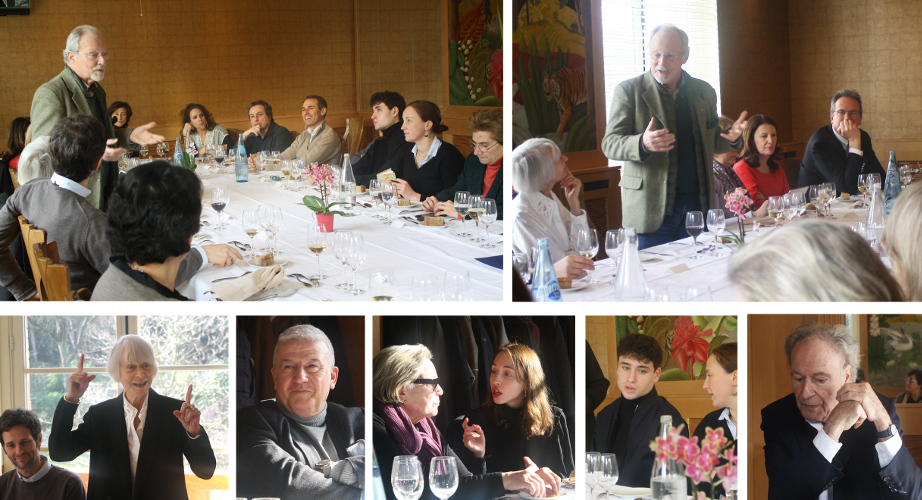Biodiversity in the spotlight at the Foundation’s annual lunch

On 23 January in Paris, the Foundation held its annual lunch, where a talk was given by Jean-Baptiste Dumond, member of the Foundation’s Board of Experts. The statistics he presented on biodiversity were indeed alarming, but a purely pessimistic outlook was not to be expected from the founder of FauneSauvage.fr. For nature has already demonstrated its enormous potential for renewal. But humankind still needs to become aware of its own responsibility for this. In Mr. Dumond’s view, the greatest cause for concern is biodiversity loss becoming common place…
Some preliminary findings: In Australia, 8 million hectares of land are estimated to have been devastated and one billion animals and insects killed, a figure likely to include species that did not get the time to be discovered. In Europe, 80% of insect species have been wiped out in 40 years, and 80% of the world’s wetlands have been lost. In the coming century, 50% of species may become extinct… and who can forget the recent forest fires in Amazonia.
‘If you want to protect nature, just leave it alone’ was what French naturalist François Terrasson had no hesitation in telling his students. Nature is much more resilient than we think. Were the overall surface of protected areas to be increased by 5% worldwide, it is estimated that 30% of biodiversity could be restored! Regulations need to evolve, and our behavior needs to change: eating less meat, promoting organic farming, stopping the use of pesticides, rewilding, allowing forests to age and wetlands and coral reefs to regenerate…
Everything is connected. That is what biodiversity teaches us by not confining itself to adding up the number of species but taking into account all the interactions between them. Examples often given are the interaction between fungi and trees, the pollination on which 70% of our crops depend, the role played by earthworms in soil health, the role played by wetlands in water management, the storage of CO2 by plants and trees… We urgently need to be mindful of all the benefits nature brings us: not only for our health, clothing and shelter but also – and this is all too often forgotten – for the beauty of the world, for aesthetics, for culture, for science, for metaphysics, for philosophy. ‘If birds had never existed, would we have planes?’
For Mr. Dumond, the greatest cause for concern today, in light of the alarming figures, is that it becomes common place. Nature conservation requires a sense of wonder. And this sense of wonder at the beauty of the world is the first thing we need to pass on to our children. In this way, they can become aware of their own responsibility and the part they have to play.
